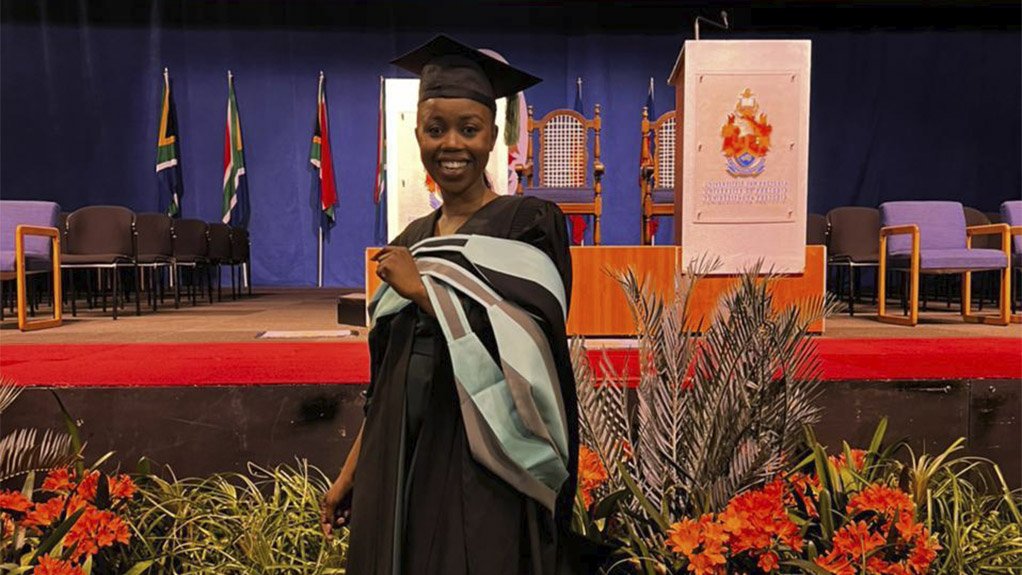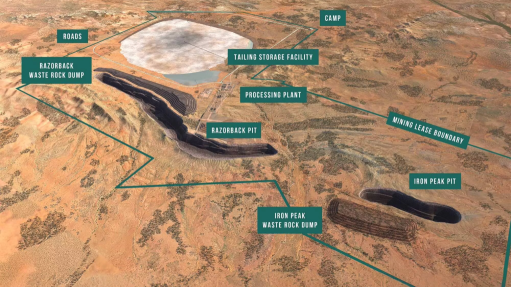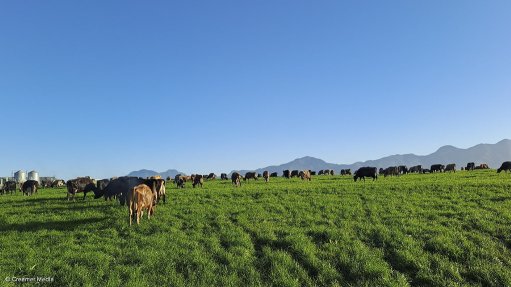GIBB Bursaries foster talent pipeline
This article has been supplied.
GIBB’s Bursary Programme was life-changing for bursary recipient and Resident Engineer, Mary Moja, who joined the business permanently in 2023 after completing her studies at the University of Pretoria.
She is one of the 566 bursary recipients supported by the engineering firm since 2008. She began her career at GIBB as an Assistant Resident Engineer before being promoted to her current role as Resident Engineer.
She says GIBB funded most of her undergraduate and postgraduate studies, which culminated in a master’s degree in chemical engineering (water utilisation) through the University of Pretoria in 2022.
“In addition to providing financial peace of mind, GIBB’s bursary programme includes invaluable vacation work experience, which allows for early integration into the business and provides an in-depth understanding of the workplace culture and expectations.”
GIBB Engineering invests a substantial portion of its training budget on its bursary programme. “The programme is a major talent pipeline for us and forms a critical part of our various development initiatives such as internal training, seminars, conferences and technical training.”
GIBB awards bursaries to employees and external applicants every year, following an intensive selection process, receiving a few hundred external applications every year to select from.
About 90% of employee bursary applications for 2025 were approved. “We encourage the concept of continuous learning amongst our employees and try to empower as many people as possible – either to pursue national diplomas or postgraduate qualifications – as long as the qualification is aligned with their particular role in the business,” adds Barnard.
This year, GIBB encouraged employees to pursue postgraduate qualifications, with 14 bursaries awarded to employees and eight to external recipients. Of the 22 recipients, 17 are male and six are female; they will collectively receive R1.5 million during the current financial year.
GIBB, Group HCM Executive, Philip Barnard, says the bursary programme is one of GIBB’s primary sources of talent. “We invest significantly in growing our talent pipeline and almost half of our overall training budget is spent on bursaries.”
Every year, GIBB advertises its external bursary programme at South Africa’s leading universities, after determining priorities with managers. “This year, we funded six civil engineering candidates and two electrical,” says Barnard.
The response for the 2025 year was overwhelming, with GIBB receiving more than 600 applications. A committee then went to work, sifting through the applications and identifying students who met the criteria, which included the engineering discipline (civil, mechanical, electrical); years of study; prior results; employment equity status and gender. Once a shortlist was established, the potential candidates underwent a rigorous interview process with relevant team members before a final selection was made.
Barnard says the programme aligns with GIBB’s transformation goals. “GIBB has set high targets for employing women in the business. To date, the field of engineering continues to attract a greater number of males than females. This year, we achieved 25% female candidates for both employee and external bursaries – a number we would obviously like to improve in coming years.”
Starting even earlier – and with a view to attracting girls of school going age to engineering – GIBB also partners with the TechnoGirl Trust to offer job shadowing opportunities to young female school-goers in Grades 9, 10 and 11. It is part of a broader initiative aimed at introducing girls to real-world Science, Technology, Engineering and Mathematics (STEM) careers.
This year, GIBB doubled the number of external bursaries on offer from four to eight. Not only do the bursary recipients receive funding for tuition, but also - where necessary - for accommodation, transport and food – typically amounting to between R120,000 and R140,000 per candidate. Additionally, they gain experiential learning at GIBB by taking part in compulsory vacation work.
The time they spend at GIBB helps them gain an understanding of the culture and ways of working, as well as being exposed to clients. “We establish relationships with our bursary recipients by immersing them in the business, specifically within the teams they will eventually be appointed to. Once they complete their studies, they have a good understanding of our culture, what is expected of them and how the teams operate. This facilitates an easier transition when they become employees.”
GIBB will advertise for the next round of bursary recipients in October this year. “We also intend to engage with tertiary institutions to gain insight into the exceptional talent out there. By January 2026, we hope to conclude agreements with our new tranche of bursary recipients to ensure they are prepared for the commencement of studies in February.”
One of this year’s recipients, Taahir Adams, who is in his final year of civil engineering studies at the University of Cape Town, says it is reassuring to know that GIBB is investing in his future. “I’m excited about taking the next step, gaining hands-on experience and eventually becoming a professional engineer who can contribute to real-world projects that improve people’s lives.”
Professional registration is a key requirement in the engineering industry. GIBB encourages its bursary recipients to become professionally registered on completing their studies and have introduced a candidate programme to assist them in doing so, yet another way it is committed to nurturing the industry’s future talent.
Adams says bursary programmes are more than a financial boost; they give students like him the chance to succeed when they may not have had the resources to do so otherwise.
“Beyond the financial support, they open doors to mentorship, work experience and being part of a professional network. It’s a step towards building a stronger, more inclusive industry, and I’m grateful to be part of that,” he concludes.
Article Enquiry
Email Article
Save Article
Feedback
To advertise email advertising@creamermedia.co.za or click here
Press Office
Announcements
What's On
Subscribe to improve your user experience...
Option 1 (equivalent of R125 a month):
Receive a weekly copy of Creamer Media's Engineering News & Mining Weekly magazine
(print copy for those in South Africa and e-magazine for those outside of South Africa)
Receive daily email newsletters
Access to full search results
Access archive of magazine back copies
Access to Projects in Progress
Access to ONE Research Report of your choice in PDF format
Option 2 (equivalent of R375 a month):
All benefits from Option 1
PLUS
Access to Creamer Media's Research Channel Africa for ALL Research Reports, in PDF format, on various industrial and mining sectors
including Electricity; Water; Energy Transition; Hydrogen; Roads, Rail and Ports; Coal; Gold; Platinum; Battery Metals; etc.
Already a subscriber?
Forgotten your password?
Receive weekly copy of Creamer Media's Engineering News & Mining Weekly magazine (print copy for those in South Africa and e-magazine for those outside of South Africa)
➕
Recieve daily email newsletters
➕
Access to full search results
➕
Access archive of magazine back copies
➕
Access to Projects in Progress
➕
Access to ONE Research Report of your choice in PDF format
RESEARCH CHANNEL AFRICA
R4500 (equivalent of R375 a month)
SUBSCRIBEAll benefits from Option 1
➕
Access to Creamer Media's Research Channel Africa for ALL Research Reports on various industrial and mining sectors, in PDF format, including on:
Electricity
➕
Water
➕
Energy Transition
➕
Hydrogen
➕
Roads, Rail and Ports
➕
Coal
➕
Gold
➕
Platinum
➕
Battery Metals
➕
etc.
Receive all benefits from Option 1 or Option 2 delivered to numerous people at your company
➕
Multiple User names and Passwords for simultaneous log-ins
➕
Intranet integration access to all in your organisation



















